What are omega-3s?
Simply put, omega-3s are healthy fats. People often misunderstand the meaning and importance of omega-3s because the terms ‘omega-3’, ‘essential fatty acids’, and ‘fish oil’ often get used interchangeably. On top of that, many people think of fats in negative terms, which is not true. Here, we cover some basic information about these all-important dietary fats. Omega-3s cannot be produced by the body in sufficient amounts to keep us healthy.
Omega-3 is a type or family of fats that the human body needs for optimal health. However, unlike most fats that we rely on, omega-3s cannot be produced by the body in sufficient amounts to keep us healthy. For this reason, omega-3 fats (and one other family, the omega-6s) have come to be known as ‘essential fats’, or ‘essential fatty acids’, which must be consumed through diet in order for us to get adequate amounts.
Among the omega-3 fats, there are three to understand: EPA, DHA, and ALA. ALA is a short-chain fat that primarily comes from plants. Common dietary sources of ALA include chia and flax. Generally speaking, for you to benefit from ALA your body must convert it into the longer-chain omega-3 fats EPA and DHA. But here’s the challenge: Just 1-5% of ALA gets converted, which means that for optimal health we must find direct dietary sources of EPA and DHA.
Sources of Omega-3s
The most reliable dietary sources of EPA and DHA come from the sea, and do not have to go through the inefficient conversion process from ALA. Salmon, cod, herring, sardines and anchovies and mackerel are all cold-water fish species that are naturally full of these healthy fats. Fish do the work of concentrating omega-3s in their bodies when they eat species lower down the food chain (smaller fish, krill, algae) in a process called bioaccumulation. By the time we eat them, they’re a rich source of EPA and DHA. You would have to consume 85-170 grams of cold-water, fatty fish every day to ensure a healthy omega-3 intake.
However, even if you favour marine-based omega-3s over plant-based ones, it can be difficult to get adequate daily amounts due to the price and safety of seafood. For example, you would have to consume 85-170 grams of cold-water, fatty fish every day to ensure a healthy omega-3 intake. Few people can realistically afford this amount every day, and pregnant women and young children are recommended to limit their consumption of certain fish due to the presence of heavy metals like mercury.
For this reason, many people opt for a fish oil supplement, which is another good source of omega-3s EPA and DHA. Unlike fish, however, the best fish oils are guaranteed to be purified of harmful contaminants. Fish oil products also contain specific amounts of EPA and DHA (check the product label for amounts per serving), which vary more in fish due to seasonal fluctuations in fishes’ diets. Even vegetarians have a reliable marine-based source of omega-3s: algae oil supplements. Microalgae is nature’s original source of marine omega-3s the foundation of the food chain that we all rely on for optimal health. Not sure which omega supplement is right for you? Find out which omega is right for you.
Omega-3s and health
Omega-3s have been widely studied for decades, and new research continues to reveal the complex and compelling functions they help serve in the human body, beginning at its most fundamental level, our cells. Healthy cells are the basis for everything we do, from eating and sleeping, to walking and thinking. EPA and DHA play major roles in keeping our cells healthy by giving cell membranes the fluidity and flexibility needed to let vital nutrients in and push cellular waste out. DHA helps support a positive mood, mental focus and clarity in both children and adults.
Alongside the universal importance of omega-3s for human cells, DHA and EPA can be loosely thought of as ‘neck up’ and ‘neck down’ essential fats. DHA has been shown to support brain structure and function, as well as healthy vision. Nearly 20% of the fatty acids in the brain’s cerebral cortex are DHA, and it is found in very high concentrations within the retina of the eye. DHA helps support a positive mood, mental focus and clarity in both children and adults. Another key benefit of DHA comes during pregnancy, when it becomes essential for fetal brain and nervous system development. EPA has been shown to support heart health, joint health, and immune function.
Within the heart, EPA helps to support the relaxation of blood vessels and overall healthy circulation. To further support vascular function and circulation, consider Natto-K, a clinically studied supplement designed to support cardiovascular health. In muscle and joint tissue, EPA can also support quicker recovery from exercise.
Triglyceride form = better absorption
One often-overlooked, but an important aspect of omega-3 supplements, is the molecular form that they come in. In fish, omega-3s exist in their natural form, a triglyceride, but many fish oil products are made with ethyl ester omega-3 molecules. These are the result of concentrating omega-3s to make a more potent product, but then skipping a final manufacturing step that recreates the natural triglyceride omega-3 molecule.
Despite the negative connotation people have with triglycerides and heart health, triglyceride-form omega-3s are entirely different. Triglycerides are the molecular form of 98% of all fats we eat. It’s no surprise that skipping steps is cheaper for fish oil manufacturers, but their cost-savings don’t translate to customers. Triglyceride-form fish oil is better for three reasons: freshness, effectiveness, and overall value.
Ethyl ester omegas are less stable molecules, so they have a hard time holding together over time, and are more susceptible to damage by oxygen. Studies have also shown that triglyceride-form omega-3s are more effectively absorbed by the body than ethyl ester omegas – as much as 70% better! For the best results, pick a product with triglyceride-form omega-3s clearly indicated on the bottle.
All this adds up to another big advantage: value. Why spend money on fish oil products that spoil quickly, and that don’t deliver the benefits you expect? The big picture sometimes gets lost when customers choose products solely on lowest price. For the best results, pick a product with triglyceride-form omega-3s clearly indicated on the bottle. Choose an independently tested and certified fish oil, and your body will thank you.




